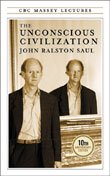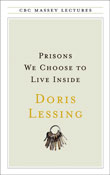I Don't Want To Know
As a writer, even though I am not part of any sort of literati, I am still plugged into the lit scene. You need to be if you want to understand the general to-and-fro of any industry you are interested in becoming a part of (same goes for TV, music, theatre, etc..). That said, I must make an admission. I am making this admission because I think there are a lot of people like me out there who feel the same but are reticent to admit it.
Here goes: I don't take any particular interest in the life of the artist outside of his or her art.
When I read a book, I don't care if an author comes from the East Coast and studied journalism, had a drug problem and now lives in a shed with a mastiff. It's not that I don't care about this author personally, it's that these facts shouldn't have anything to do with the book that I am about to read. I should be able to pick up the book, knowing nothing about said author, and be able to read it, enjoy it, be fully affected by it, without substantially missing something due to a lack of familiarity with the author's biography.
And yet, when you are culturally plugged-in (and by this I mean, you check out industry blogs, trade mags, etc.) there is so much white noise about the artists themselves that it seems divergent from what it is they are supposed to be doing: their work. We can talk about Picasso's passions, but 100 years from now there will probably only be discussion of his work - your work is the only thing left after you and everyone who knew you has died. And if people are still talking more about you than your work after this point, then I would think the quality of your work was overstated.
Would knowing that Stephen King battled drug addiction offer an insight into some of his writing? Yes. But, my point is that if that insight is necessary in order to fully appreciate a piece of work then there is a problem. The work doesn't work if you need a biographical cheat sheet to inject context into the material.
I think Bryan Ferry is an fantastic vocalist - and I don't want to know anything more than that. Nor the details outside a director's films, nor what inspired the playwright to write her play. I've got my own shit going on, thanks very much.
Ephemera is for journalists, fanzines, and those working on their Ph.D. The general public should not feel inadequate if they pick a DVD or book off a shelf, sit down in a theatre, or load a song without being prepared with supplemental information not contained within the medium which contains the work. The work inevitably has to stand up for itself. I write this for two reasons: first, with the likes of the AV Club and traditional print/TV media clamouring to add as much web-based context as possible to every article, there's a growing sense that - for the everyman - if you aren't savvy to the smallest details of each artist's passings and goings, you are nothing but a tourist. Secondly, embracing social media to a claustrophobic degree, we can now read endless commentating on authors reading their work for a live audience!...something no one really asked for outside the publishing companies themselves and perhaps the authors' parents. Let's face it: most authors can't read aloud to save their lives - it's not their specialty.
There are reasons for digging deeper, but that's up to the individual. It was interesting to learn more about HP Lovecraft when I reviewed Michel Houellebecq's quasi-biography of him and his work. What's funny, however - using that same example - is that when I proceeded to read the two works by Lovecraft contained in that same book, I don't recall thinking to myself "Ahh - this is where his uncomfortable relationship with women takes shape!". That's because the stories were two of his masterpieces, and when you witness a masterpiece, peripheral biographical information is going to gunk-up your enjoyment.
The medium may be the message, but the work contains the words. Outside of this we are left with cultural "bonus features". Nice to have, but not necessary.















